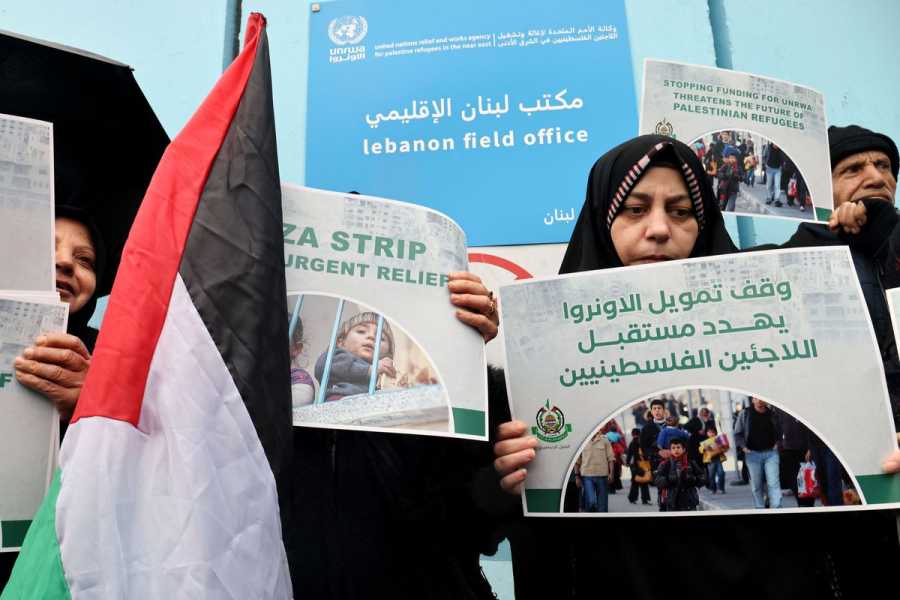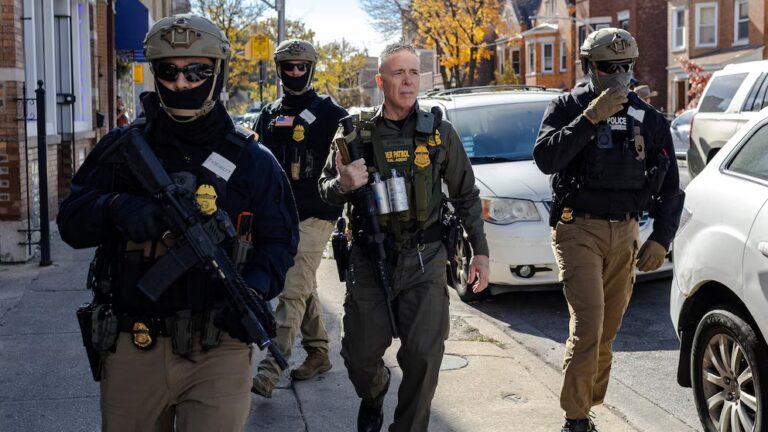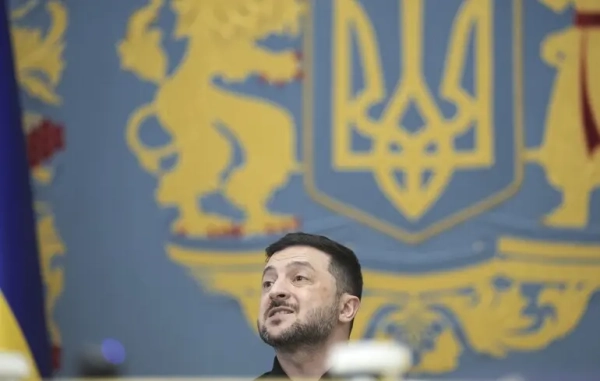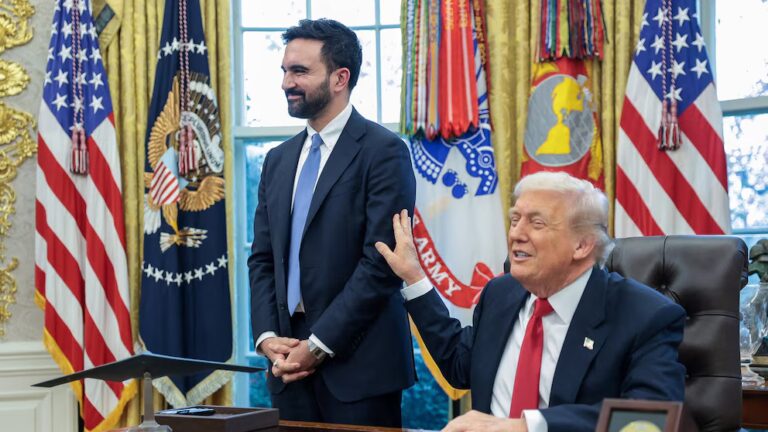Why the US and other major donors are pausing funding for Gaza.

Palestinian refugees gather outside the offices of UNRWA in Beirut, on January 30, to protest against some countries’ decision to stop funding the organization. Anwar Amro/AFP via Getty Images Ellen Ioanes covers breaking and general assignment news as the weekend reporter at Vox. She previously worked at Business Insider covering the military and global conflicts.
The United States and about a dozen other countries have paused additional funding for UNRWA, the United Nations Relief and Works Agency for Palestinian refugees, on the basis of Israeli allegations that some 190 employees of the organization are members of Hamas or Palestinian Islamic Jihad — and that 12 of them took part in the October 7 attacks against Israel.
The allegations and subsequent funding pause are potentially one of the most consequential controversies for civilians in Gaza since the October 7 attacks triggered the war in Gaza. The cuts don’t mean UNWRA will have to shut down immediately, but unless funding is restored, the agency’s long-term mission — and continued humanitarian aid for Gaza — is in doubt.
The controversy started on Friday, just after the top UN court ruled that Israel must do more to prevent genocide of the Palestinian people as it continues to prosecute its war in Gaza, including increasing access to humanitarian aid. Without UNRWA, the primary facilitator for humanitarian aid in Gaza, that order becomes meaningless.
UNRWA was established by the UN in 1949 to provide assistance and services — schools, clinics, food and cash assistance, and shelter — for the Palestinian refugees from the 1948 Nakba, when some 700,000 Palestinians fled their homes in what is now Israel during the war that established the country. UNRWA serves the Palestinian population not only in Gaza, but also in the West Bank, Syria, Lebanon, and Jordan.
In October, the Biden administration secured $75 million in additional food aid for UNRWA after a congressional block on the aid due to concerns that the agency employed Hamas members.
But after the allegations on Friday, the US State Department announced that it would pull its funding while UNRWA was undergoing a review by the UN’s investigating body, the Office of Internal Oversight Services (OIOS).
The US, Switzerland, Canada, the UK, Italy, Australia, the Netherlands, Austria, Germany, Finland, Japan, Estonia, and Romania have all paused funding, while the EU and France are considering doing so, according to Al Jazeera.
Upon learning of the allegations, UNRWA immediately fired nine of the employees accused of being part of Hamas; two are dead, and the status of the twelfth is currently unknown.
“It is shocking to see a suspension of funds to the Agency in reaction to allegations against a small group of staff, especially given the immediate action that UNRWA took by terminating their contracts and asking for a transparent independent investigation,” UNRWA Commissioner General Philippe Lazzarini said in a statement Friday, further referring to the decision to pause funding as “collective punishment” against Palestinians in a post on X.
Here’s what you need to know about what happened — and what’s next:
What is Israel claiming happened?
Israel’s military intelligence wing and Shin Bet, the internal security service equivalent to the FBI, reportedly has a six-page dossier — which some news outlets have been able to access but which Vox cannot independently verify — that outlines the allegations.
Reuters, one of the outlets that has seen the dossier, reported that Israel had names and photos for 11 of the workers, one of whom is a school counselor Israel accused of assisting his son in kidnapping a woman on October 7. According to Israeli authorities, 1,200 people were killed and more than 250 kidnapped that day. Two of the 11 named are accused of participating in the massacres at the villages of Be’eri, where at least 97 people, or one in 10, were killed, and Re’im, which left more than 360 dead. One is accused of coordinating supply logistics for the attack and of helping transfer an Israeli soldier’s body to Gaza. Others are accused of crossing into Israel on that day, but their roles in the attacks are not clear.
As of Tuesday, Israel had not provided the UN with an official copy of the dossier.
How legitimate are the accusations?
The accusations are extremely serious, but it’s not clear how strong the evidence is.
Hamas, in addition to being a militant group which perpetrates violence against not only Israelis but Palestinians in Gaza, too, is a political movement.
“UNRWA is one of the largest employers in Gaza — this is not a place with a normal, functioning, healthy economy,” Michael Wahid Hanna, US program director at the International Crisis Group, told Vox. “It wouldn’t be surprising if there were some among the staff who maybe were affiliated, had family affiliated, had sympathies” with Hamas. UNRWA has about 30,000 overall employees and 13,000 in Gaza, most of whom are Palestinian.
It is not totally out of the question to imagine that some UNRWA workers did take part in the October 7 attack, but it is important to consider how the Israeli government obtained this information.
Initial reporting about the dossier from Axios stated that the information was obtained through confessions. “A lot of the intelligence is a result of interrogations of militants who were arrested during the October 7 attack,” a senior Israeli official told Axios’s Barak Ravid. But subsequent reporting from the New York Times does not mention confessions, instead claiming that the evidence was obtained using the accused militants’ cell phone conversations, text messages, and movements on the day of the attack.
The Israeli security apparatus has a long history of using torture on Palestinian detainees to extract confessions. In recent decades that use of torture has been curtailed somewhat by the courts, but the Shin Bet still uses some techniques, like denial of sleep and solitary confinement to elicit confessions. And then there’s the so-called “ticking time bomb” loophole, in which Shin Bet interrogators can use “exceptional ways to investigate” if such tactics were the only way to prevent possible future violence and save lives.
As Haaretz and Euro-Med Human Rights Monitor have documented, Palestinian detainees are currently being abused in Israeli prisons, and six have died since October 7.
“The thing about torture, is that if a interrogator does not know the answer, and is using violence, the interrogator will not know whether what is being said is true, or something that’s said just to make the pain stop,” Lisa Hajjar, a professor of the sociology of law and conflict at UC Santa Barbara, told Vox. “And so, that’s one sort of phenomenon, but in another sense, what is very common in torture in political conflicts, the state really has an interest in generating information that they can use for [its] purposes, whether that information is true or not.”
If indeed torture was used to collect Israel’s intelligence, that calls its veracity into question.
Additionally, Israel’s allegations about UNRWA could be colored by its past assertions being questioned. For instance, the Israeli government claimed that Hamas used al-Shifa hospital in Gaza as a “command and control” center. Israel used those allegations to attack the hospital in November, but a subsequent investigation by the Washington Post called those assertions into doubt. Without publication of Israel’s dossier or more independent review of its evidence, it is difficult to know how accurate its information is.
The US, at least, is standing with Israel. On Monday, Secretary of State Antony Blinken said during a press conference that “we haven’t had the ability to investigate [the allegations] ourselves. But they are highly, highly credible.”
Why is all of this only coming out now?
The timing of the allegations is surprising, especially because, as Lazzarini, the head of UNRWA, said in a statement Friday, “UNRWA shares the list of all its staff with host countries every year, including Israel. The Agency never received any concerns on specific staff members.”
There have been, however, “persistent allegations about UNRWA officials and UNRWA workers having links with Hamas, being controlled by Hamas. There has been this longstanding focus and critique [within Israel, which] has sought to both look at the kind of things UNRWA does, its activities, and the people who work for the organization,” Hanna said.
Israeli politicians have gone beyond simply attacking UNRWA rhetorically: Prime Minister Benjamin Netanyahu even tried to dismantle it in 2017. Those efforts have only been amplified during the current war in Gaza, during which Israeli officials have been undermining the UN system overall.
Multiple Israeli officials accused the International Court of Justice of being antisemitic or of showing anti-Israel bias after it ruled that Israel could be committing genocide or failing to prevent it from happening in Gaza. Itamar Ben Gvir, the country’s ultra-right-wing national security minister, said that Israel should ignore the rulings.
Indeed, Israel’s relationship with the UN is at an historic low, as Gabriela Shalev, Israel’s former UN representative, told CNN in December, and trust in UNRWA is exceptionally low, as Shalev and other Israelis question whether humanitarian goods are going to Hamas or to civilians, despite the extremely limited aid actually getting through.
Prior to the war, the main arguments against UNRWA were that schools encouraged antisemitic teachings — even though, as Natan Sachs, director of the Middle East program at the Brookings Institution, told Vox, the only alternative to UNRWA schools in Gaza is “Hamas schools — the organization provided aid to Hamas, and that it perpetuated the conflict between Israel and Palestinians because it didn’t integrate Palestinian refugees into new populations.
“In the Israeli argument, UNRWA is a central reason for the perpetuation of the Palestinian refugee problem,” Sachs said. “So they will simply say that hundreds of thousands of Jewish refugees from precisely the same time were resettled in Israel and are not called refugees anymore and certainly their children and grandchildren are not. But UNRWA was set up in such a way that the great-grandchildren of refugees from 1948 are considered refugees.”
Einat Wilf, a former Israeli politician, has argued that the Palestinian population is the only refugee population that has grown over the decades, rather than diminished, and that UNRWA perpetuates the idea that Palestinians have any right to return to their land.
The conservative Israeli think tank Kohelet Policy Forum, which was a major driver of Netanyahu’s failed judicial reform movement, has published policy papers since 2018 calling for the dismantling or defunding of several UN agencies including UNRWA. Kohelet researcher Noga Arbel told a Knesset subcommittee for foreign policy on January 4 that “UNRWA undermines the existence of the State of Israel, and is currently run by Hamas. The Palestinian education system is the gravest security threat for the State of Israel, and UNRWA is the core of the problem. If we will allow it to continue to perpetuate the Palestinian refugee problem, instead of resolving it, the threat will only grow.”
So while the end of UNRWA would be catastrophic for Palestinians, for some Israeli politicians, the organization’s demise would mean the achievement of a long-held goal.
Does this put other UNRWA missions in danger?
In a word, yes.
Though Gaza is UNRWA’s largest and most critical operation given the ongoing conflict and looming starvation in the region, UNRWA also provides schooling, shelter, medical care, and food and cash assistance in Lebanon, Syria, and Jordan, as well as in the West Bank.
The paused donations make up about half of the agency’s budget, and, according to Stephane Dujarric, the spokesperson for UN Secretary-General Antonio Guterres, “Right now, I think past February, it looks that [UNRWA operations] will run out of money.” Given that, he said during a Monday press conference, “the outlook for UNRWA and the millions of people it serves, not only in Gaza, but also in East Jerusalem, in the West Bank, Jordan, Lebanon and Syria, is very bleak.”
“UNRWA was able to just barely make do in the past with funding cuts, and the suspension of funding by the US, its largest donor, under Trump,” Hanna said. “But of course, this isn’t a normal set of circumstances. Various humanitarian [organizations] both within the UN system and outside, are warning of starvation. And so, if the United States really follows through and does not restore its funding and others follow suit, it’s just hard to see how there isn’t going to be a coming acceleration of what already is a dire catastrophe.”
Sourse: vox.com






